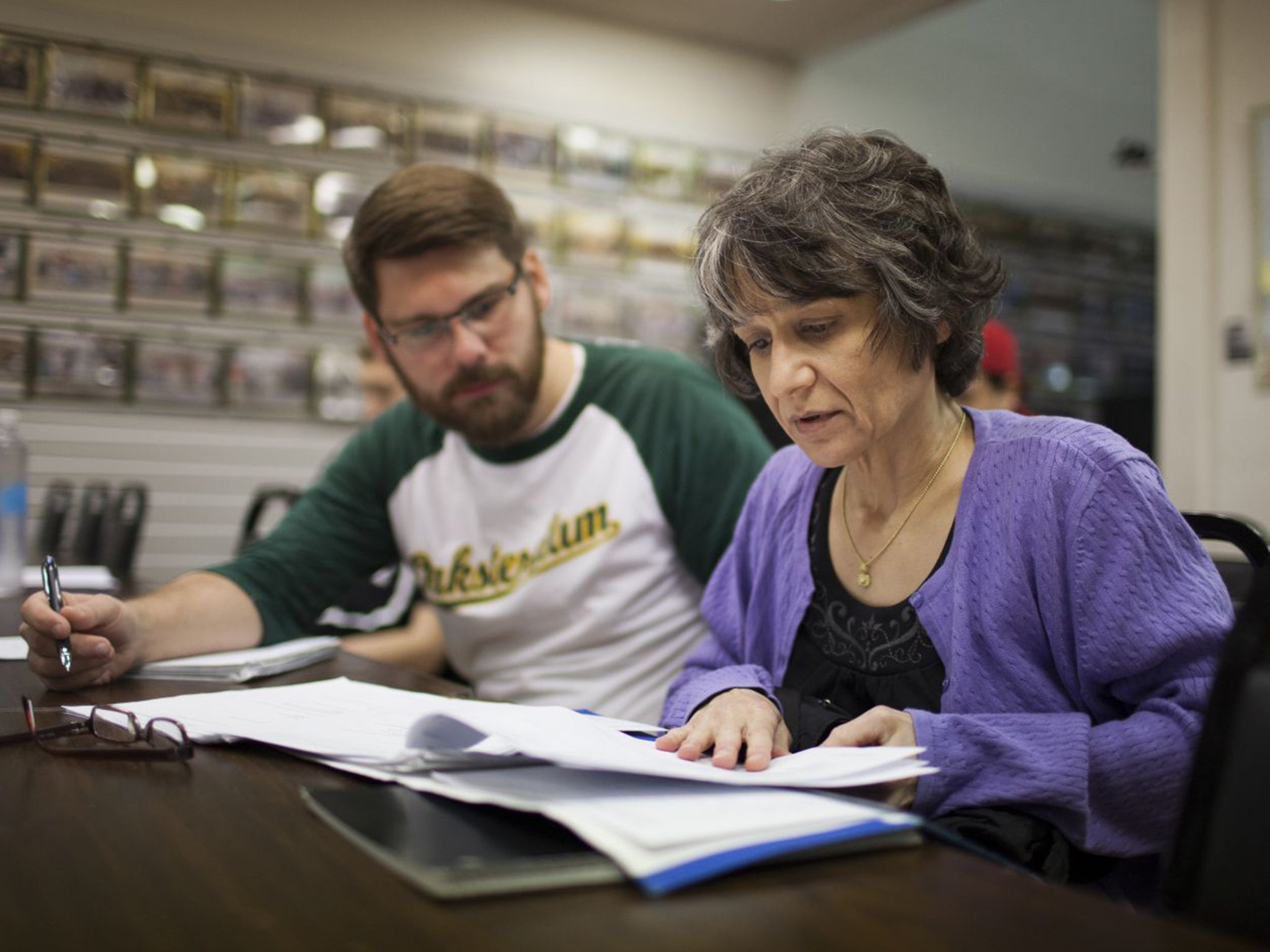The US university making students the masters of marijuana
Cannabis is fast becoming a legitimate business, worth $3bn a year. And Oaksterdam University aims to capitalise on that

Your support helps us to tell the story
From reproductive rights to climate change to Big Tech, The Independent is on the ground when the story is developing. Whether it's investigating the financials of Elon Musk's pro-Trump PAC or producing our latest documentary, 'The A Word', which shines a light on the American women fighting for reproductive rights, we know how important it is to parse out the facts from the messaging.
At such a critical moment in US history, we need reporters on the ground. Your donation allows us to keep sending journalists to speak to both sides of the story.
The Independent is trusted by Americans across the entire political spectrum. And unlike many other quality news outlets, we choose not to lock Americans out of our reporting and analysis with paywalls. We believe quality journalism should be available to everyone, paid for by those who can afford it.
Your support makes all the difference.Jean Kennedy has degrees in biology and a Master’s in special education. Now, she’s trying to decide what to do with her third degree: a certificate of achievement from Oaksterdam University, the Harvard Business School of marijuana.
“I’m Italian,” said Ms Kennedy, 56, a retired high school biology teacher with graying hair and a heavy New York accent. “You know Italians, we grow tomatoes. Maybe I’ll grow some plants.”
Horticulture 102 is one of the many subjects she studies at Oaksterdam, whose campus is set amid the hip cafés, restaurants and cannabis dispensaries of downtown Oakland. Founded in 2007, the school sees itself as a training ground for citizen advocates in the fight to legalise marijuana.
Oaksterdam is rebounding after a 2012 raid by the federal government, which deems marijuana a Schedule One illegal drug – the same category as cocaine and heroin. Federal agents, many of them masked and armed, broke down the doors with battering rams, carting away an estimated 60,000 cannabis plants and scattering the school’s terrified faculty and students.
The university was devastated by the raid, which Oaksterdam founder Richard Lee dismissed as a “last-ditch effort” by federal authorities to enforce marijuana laws that are out of step with the times.
Medical marijuana was approved by Californian voters in 1996. In the years since the raid, four states and the District of Columbia have legalised pot, making it a legitimate business in parts of America, worth an estimated $3.5bn (£2.3bn) a year.
Still, as Oaksterdam preaches the gospel of pot entrepreneurism, its history offers a lesson in harsh reality. Robert Raich, a lawyer who has twice argued legalisation cases before the US Supreme Court, makes that lesson explicit in “Cannabusiness 102”, where he warns students of the risk inherent in cultivating the drug. “Until the federal government changes the Controlled Substances Act,” Mr Raich said, “I teach how to create defences against possible hostile action.”
Business at Oaksterdam is booming despite that risk. The school employs 20 staff members and 150 instructors, including some of the biggest stars in the cannabis universe. Debby Goldsberry co-founded the Berkeley Patients Group medical cannabis collective, and Ed Rosenthal is often cited as the world’s leading authority on marijuana cultivation. The Oakland lecture hall holds 50 students and every seat is paid for.
There is a new campus in the works in Las Vegas, where two four-day seminars sold out this year, with 250 students paying as much as $995 apiece. Last month, the school conducted a conference in Orlando, where about 300 doctors and nurses earned continuing education credits after learning to use cannabis to treat an array of medical conditions, including glaucoma and glioblastoma.
And the school routinely advises politicians from places including California and Jamaica on topics such as how to appraise applications for medical marijuana and dispensary licences, and how to promote marijuana research.
At the main campus, the walls display photos of the school’s 23,000 graduates, who range in age from 18 to 65 and represent every state and 30 countries. Last month, 30 Californian lawmakers drove from Sacramento for lectures on taxation and regulation, studying for the possible passage next autumn of an initiative that would legalise marijuana for recreational use.
Aseem Sappal, the school’s provost and dean, said he wants to build Oaksterdam’s credibility as a serious institution of higher learning. “We have scepticism because it’s a big joke, people just smoking pot. But the country is moving in this direction for a reason,” Mr Sappal said.
As the legalisation movement grows, Oaksterdam is attracting students who say they have never smoked pot. One is Ms Kennedy, whose primary interest is in the plant’s medicinal benefits. “These are not crazy people. These are not potheads,” she said. “When you come here, you see it: these are businesspeople.”
© The Washington Post
Join our commenting forum
Join thought-provoking conversations, follow other Independent readers and see their replies
Comments